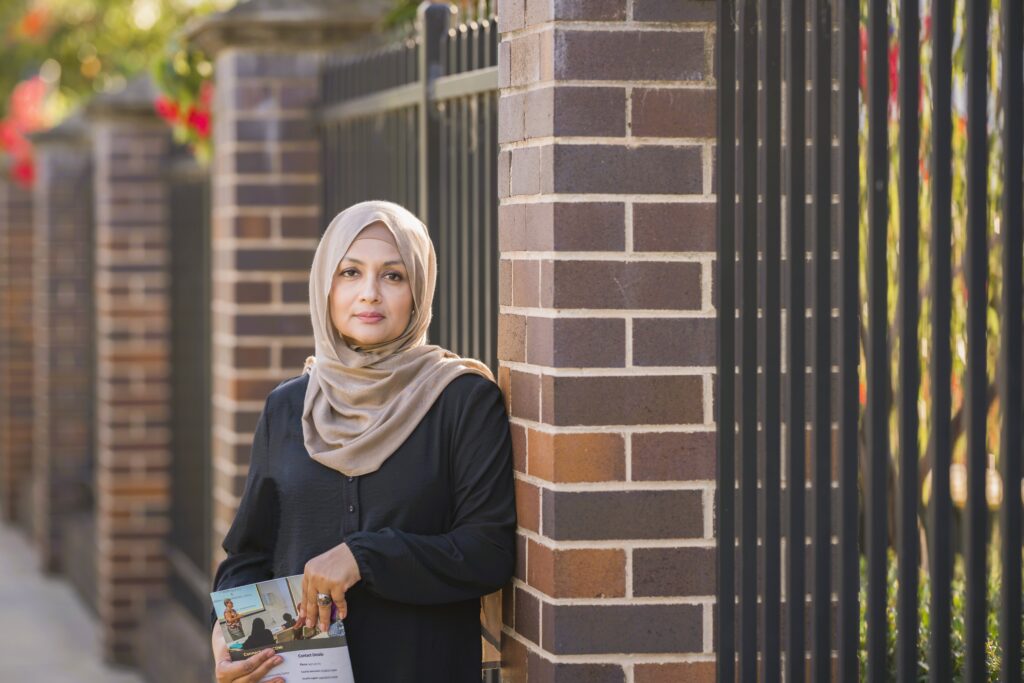Last year, more than 50 women lost their lives to domestic and family violence in the country we all call home. It’s a pervasive and, concerningly, a growing issue in Australia that can too easily be categorised as a women’s issue, leaving half of the population out of the solution.
What’s troubling me about how we address domestic and family violence as a nation is that women, typically, take the lead in discussing, debating, educating and reforming the topic in line with being disproportionately affected by the issue. Domestic violence cannot be sidelined as a “women’s issue”, it is a community issue. That’s why men also need to be included in this conversation.
Addressing domestic violence with only women involved in the conversation is like having a rowing team where only one side is paddling. Without the synchronised effort of both sides, the boat circles endlessly, unable to make forward progress. It is imperative that men, too, lead these conversations, deal with misinformation, and undertake education that explains the underlying factors contributing to violent behaviour.
In culturally diverse communities, where first and second generation Australians are intertwining their old worlds and new, leaving a proportion of the community out of the education is particularly dangerous. Educating families from culturally or linguistically diverse backgrounds on accepted and unacceptable behaviours within relationships, along with an emphasis on legal rights under Australian family law, is an area that needs immediate attention. Put plainly, what may be acceptable behaviour in other countries and cultures is not acceptable in Australia, and we need to deliver urgent, targeted educational initiatives to bridge this knowledge gap.
In the case of one of my clients at Cultural Diversity Network Inc (CDNI), Kamila (false name), who endured years of physical, emotional, and financial abuse, refrained from reporting the abuse as she believed it would result in her losing her home and custody of their children. Shackled by financial dependence, Kamila was too afraid to break free because the cost would be too great. As a first generation immigrant to Australia, Kamila, nor her husband, had any understanding of the family law in Australia which grants rights to women in abusive relationships.
There’s Parvin (false name), who came from India on a spouse visa 10 years ago. She has endured physical violence on and off since her arrival to Australia, and accepted it because she was holding onto the belief that her husband needed a way to relieve his stress. One day, when the abuse became life-threatening, she called the police to report it. Her husband couldn’t understand why she had reported it. “Why did she have to call the police?” he said incredulously. “It’s a small thing… a family matter.”
Through my organisation, I have witnessed too many instances where abusers confidently deploy misinformation as a tool of control in abusive relationships. A recent ABC article touches on this issue, highlighting the reality that many ‘red flags’ shown by abusers are missed by their partners. A lot of the patterns of family violence and coercive control, in particular, are not necessarily understood by the other partner.
The call for education and information sessions for men on this difficult topic is not just a moral obligation but a pragmatic step towards building a culture where women are treated equally and with respect. By involving men and boys of all cultural persuasions in these crucial discussions, dispelling misinformation, and promoting understanding of consent and of toxic behaviour patterns, we pave the way for a society that upholds the values of equality and respect in relationships.
Australia is making steps down the right track, with Labor MP and Education Minister Jason Clare investing $83.5 million in consent education “to deliver evidence-based and expert-developed respectful relationships education in school.”
“Wherever gender-based violence occurs, we must confront it. In our homes, in our parliaments, in our universities, in our workplaces,” Mr Clare said.
Prime Minister Anthony Albanese, too, has also spoken out against domestic and family violence on multiple occasions, the most recent of which was on International Day for the Elimination of Violence against Women on November 25, where he declared “there is no time to waste” in ending violence against women and children.
“It isn’t just the job of governments. Changing the attitudes that entrench inequality and discrimination, and objectify women and disregard consent, is everyone’s responsibility,” Mr Albanese wrote in a statement.
“Men in particular have to step up. And male leaders have an opportunity to champion change and create the conditions that prevent violence, abuse, discrimination and harassment.”
I was also humbled by the story of Nigel Button who spoke out about his self-development after being a perpetrator of domestic abuse for many years; a problem he, by his own admission, “didn’t even know he had”.
It is also particularly positive to see this message reaching platforms like TikTok, where everyday men like Dylan Barnett are speaking openly and honestly about the effects of domestic violence on women, something that he has witnessed after re-entering the dating scene.
These men, along with all the others who are standing up in support of all victims of domestic and family violence, are part of an important trend that we hope to see more of in 2024.
While the issue of domestic and family violence remains a significant challenge, the growing number of men engaging in these conversations offers hope and optimism for a future where such violence is eradicated, and all individuals can live free from fear and abuse.
If you or someone you know is experiencing, or at risk of experiencing, domestic, family or sexual violence call 1800RESPECT on 1800 737 732, chat online via 1800RESPECT.org.au or text 0458 737 732.
If you are concerned about your behaviour or use of violence, you can contact the Men’s Referral Service on 1300 766 491 or visit www.ntv.org.au.


